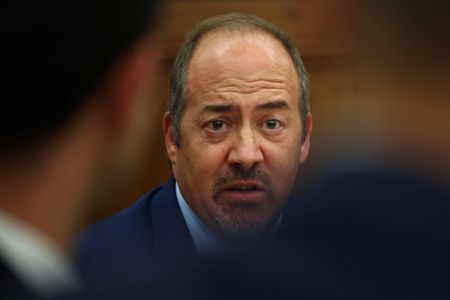LONDON (Reuters) – Tax cuts promised by British Conservative leadership frontrunner Liz Truss risk a repeat of the spiralling inflation of the 1970s, former British finance minister Nigel Lawson said on Wednesday, backing her rival for the top job, Rishi Sunak.
The question of tax has dominated the campaign to replace Boris Johnson as prime minister, with former finance minister Sunak saying he would wait until inflation is under control before reducing taxes, while foreign minister Truss has promised immediate tax cuts for both individuals and businesses.
In the early 1970s, Conservative prime minister Edward Heath’s “dash for growth” policy contributed to inflation spiralling out of control by the mid-1970s.
“We saw the impact of rising prices, crippling the economy and putting millions out of work.
Savings were eroded and investment collapsed. I am profoundly concerned that we are in danger of repeating the mistakes of that decade,” Lawson, finance minister under Margaret Thatcher, wrote in the Telegraph.
Whoever triumphs when the result is announced on Sept.
5 will inherit some of the most difficult conditions in Britain in decades. Inflation is on course to hit 11% annually, growth is stalling, and industrial action is on the rise.
Lawson said he and Thatcher were in agreement that the only way to substantial, lasting tax cuts was first to tackle inflation and put the economy on a sound footing.
Truss’s pledges for tax cuts, which she has argued will not be inflationary, were “uncomfortably reminiscent of the missteps of the Tory government of 50 years ago”, Lawson said.
“The country will not forgive our great party if we forget that lesson,” he said.
(Reporting by Kylie MacLellan, editing by Deepa Babington)











